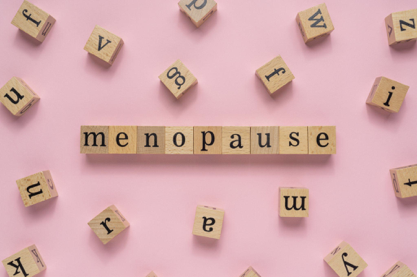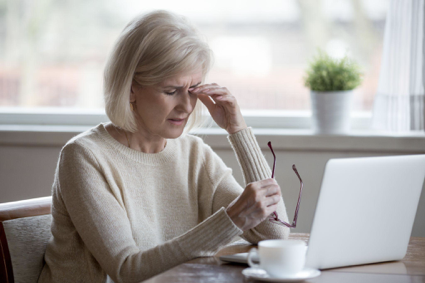Posted on: 10 February, 2022
Menopause s often a subject surrounded in confusison and mis-information. When women reach their 40’s, the changes in their body and hormones can have an impact on many aspects of the body. Since, some people know very little about menopause, we thought we would address a concern many will be unware of.

Many women who have experienced menopause or are experiencing meonpause have noted struggling with dry eyes during this time. Although this is not a serious condition, it can cause some feelings of dis-comfort and is best treated with the support of an optician.
How does menopause cause dry eyes?
It may not be the case for all women, but as we age our eyes experience a reduction in tear production. Meaning our eyes are less lubricated than usual. As a woman experiences menopause she experiences a decrease in the production of hormones such as androgen and oestrogen. Some research has looked into this and found that as androgen levels decrease, as does the oil content in the tears produced. Which can impact how quickly these tears evaporate. Subsequently causing women’s eyes to become dry and inflamed.

The Symptoms Of Dry Eyes
If you are currently experiencing menopause and are unsure if your symptoms are symptoms of dry eyes, here is what to look out for:
Treatment for Dry Eyes
If you are suffering with dry eyes, you will be pleased to know there are several options for treating this. If you have only mild symptoms, giving your eyes some time to rest is really important. For example, spending less time using digital devices and reducing the amount of time you spend wearing contact lenses. However, if your symptoms are beginning to impact your daily life, it is best to speak with an optician or a pharmacist who can recommend some treatment solutions. For example, lubricating eye drops will work amazingly to lubricate your eyes and minimise feelings of dis-comfort.
If you do have any of the symptoms mentioned above and would like some support from a team member at one of our practices, do not hesitate to get in touch.
Copyright 2024 R. Woodfall. All rights reserved.